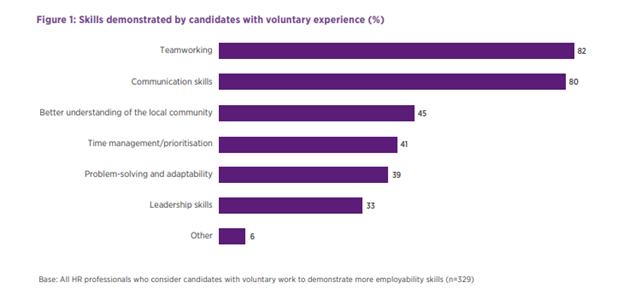Charity partnerships - employee engagement dynamite

Described as ‘The Great Resignation’, a recent survey revealed that almost one in four UK workers are planning to change their jobs. (Randstad UK, 2021). As such, increasing employee engagement is the top priority for companies, or they risk losing their best talent. Employee engagement increases performance and loyalty, whilst reducing the risk of burnout.
Whilst this is a huge challenge for companies, it presents a real opportunity for charities. By engaging their employees in your charity partnership, you are providing a huge benefit – ensuring your partnership grows longer and stronger. Below are our top tips for using your charity partnership to engage your corporate partners employees.
Create opportunities for employees to have a positive social impact
The Edelman Trust barometer shows us that 7 in 10 employees expect opportunities for social impact. Helping employees connect what they do to what they care about is one of the most important ways that companies can increase employee engagement (Harvard Business Review,2021).
Giving employees live updates on how their company is benefitting your cause can be hugely powerful. A key way to do this is to tell stories – you can see our blog on how to do this here.
Create opportunities for colleagues to develop their skills
A key way of securing employee engagement is through upskilling and personal development plans. Think about the problems your charity is facing – it might be that your social media strategy isn’t strong enough, your helpline isn’t automated or that you don’t have a long term strategic plan. By taking this problem to a company and offering them the opportunity to solve it, you give them the opportunity to engage their team.
This leads to a company with stronger teams, improved morale and the opportunity to shout about their work.
A recent survey by the Chartered Institute of Personnel and Development highlighted the most popular skills and competencies that volunteering had helped to develop:

Support the company to live its Purpose
According to a recent PwC study, millennials who have a strong connection to the purpose of their organization are 5.3 times more likely to stay. But the vast majority of employees remain disengaged from work, and only 33% draw real meaning from their employer’s purpose.
Though it is increasingly common for businesses to have a set mission statement, companies cannot claim they are a purpose-driven unless they are actually doing something about it. We know that one of the most effective ways for companies to show their commitment is by building a shared purpose, long-term partnership with a charity. By partnering with a charity they can tap into the specialist knowledge and skills of a cause that matches their purpose. This partnership will give them the scope to involve colleagues, engage customers and demonstrate their impact.
Putting purpose at the heart of your partnership strategy creates a stronger offer for each partner. Show your corporate partners how your charity is uniquely positioned to help them deliver their purpose, due to the work that you do and where you are doing it.
Purpose-driven partnerships have the potential to increase employee motivation, performance, loyalty, and collaboration. They are employee engagement dynamite because they bring meaning into the workplace.
To learn more about using charity partnerships to engage employees, download our recent report – Engaging with Purpose. Alternatively, please contact us on team@remarkablepartnerships.com.




